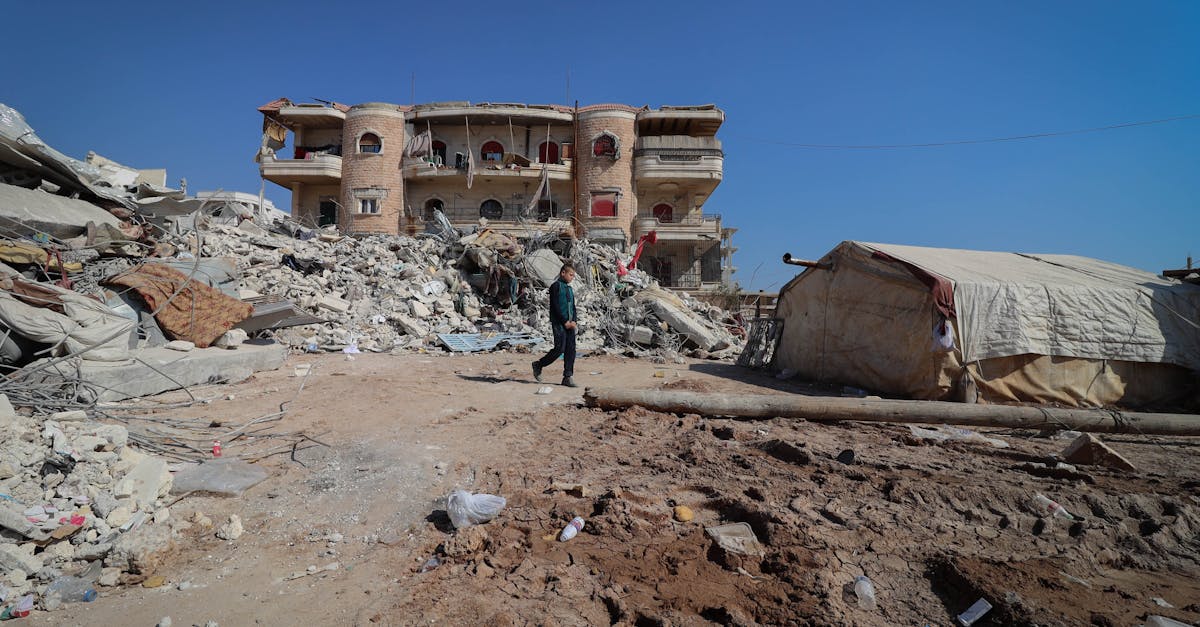Global Conflicts and Their Humanitarian Impact
Introduction
In our interconnected world, conflicts are not just regional complications but have repercussions that ripple through the global community. From historical disputes to modern-day territorial disagreements, global conflicts have left indelible marks on societies and economies. These disputes disrupt the lives of millions, leading to tragic humanitarian crises. But what exactly lies at the heart of these conflicts? And how do they impact not just the regions directly involved, but the world at large? Indeed, understanding global conflicts requires a holistic view of political, social, and economic factors. This article sheds light on the humanitarian impacts of these complex disputes.
Advertisement
Historical Context
Conflicts have been a part of human history since time immemorial, shaped by numerous factors such as religion, power, and resources. The 20th century alone witnessed two World Wars, several Cold War skirmishes, and numerous regional disputes. These historical conflicts have not only set the stage for modern disagreements but have also provided lessons on diplomacy and peacekeeping. While borders have changed over the years, the underlying causes of many disputes remain rooted in historical grievances. Understanding these contexts is crucial for grasping their humanitarian implications today.

Ivan Samkov/Pexels
Advertisement
Impact on Civilians
The immediate victims of any conflict are often the civilians caught in the crossfire. Armed confrontations displace entire communities, pushing them into the precarious lives of refugees and internally displaced persons (IDPs). According to the United Nations Refugee Agency (UNHCR), a staggering 82.4 million people were forcibly displaced worldwide by 2020. These individuals face dire conditions, lacking access to basic necessities like food, water, and healthcare. Women and children suffer disproportionately, with increased vulnerability to violence and exploitation. The impact on civilians is devastating and echoes through generations.
Advertisement
Economic Consequences
Global conflicts severely strain the economies of affected regions. Destruction of infrastructure, loss of workforce, and disruption of trade are just a few examples. Countries embroiled in conflict often face economic collapse, struggling with inflation and high unemployment rates. The costs of war are exorbitant, diverting resources away from critical areas like health and education. Additionally, neighboring countries and global economies also feel the shockwaves, as disruptions affect global supply chains and markets. The economic aftermath of conflicts can be a hurdle difficult to overcome for many nations.
Advertisement
Environmental Impact
Conflicts also have devastating effects on the environment. Warfare destroys ecosystems, contaminates water supplies, and leads to loss of biodiversity. The use of chemical weapons and the bombing of industrial sites release toxic substances into the environment, leading to long-term damage. Additionally, the movement of large numbers of refugees can strain natural resources in host areas, further exacerbating environmental challenges. Environmental damage during conflicts not only affects current populations but also poses significant risks for future generations.
Advertisement
Human Rights Violations
War zones often become breeding grounds for human rights abuses. Violations range from torture, unlawful killings, and forced disappearances to sexual violence and child enlistment. Armed groups, including state forces, may disregard international humanitarian laws, targeting both combatants and non-combatants alike. These violations not only traumatize victims but also erode the fabric of societies, fostering cycles of violence and mistrust. Protecting human rights in conflict zones remains a formidable challenge for international organizations and governments alike.
Advertisement
Role of International Organizations
International institutions like the United Nations, International Committee of the Red Cross, and non-governmental organizations play pivotal roles in mitigating the humanitarian impacts of conflicts. Through peacekeeping missions, advocacy for human rights, and humanitarian aid, these organizations strive to ease the suffering of affected populations. However, limitations in funding and resources, coupled with geopolitical interests, often hinder their efforts. Despite these challenges, the resilience and dedication of international bodies remain crucial in conflict resolution and humanitarian assistance.
Advertisement
Diplomacy and Conflict Resolution
Effective diplomacy is key to resolving conflicts and mitigating their impacts. Peace negotiations, treaties, and dialogues are vital steps toward reconciliation. Successful diplomacy takes into account the interests of all parties involved, fostering mutual understanding and compromise. Initiatives like disarmament, economic cooperation, and cultural exchanges can also pave the way for lasting peace. While diplomacy can be a long and arduous process, it remains the most viable solution for preventing and resolving future conflicts.
Advertisement
The Role of Global Citizens
The impact of global conflicts is not confined to national borders. As global citizens, individuals have a role to play in advocating for peace and supporting humanitarian efforts. Awareness campaigns, donations, and volunteer work can make significant differences in the lives of those affected by conflicts. Education and advocacy can also contribute to a better understanding of global issues, fostering a world that prioritizes peace and cooperation. Each person, in their capacity, can contribute to a more harmonious global society.
Advertisement
Conclusion
Conflicts may arise from various factors, but their humanitarian impact is uniformly tragic. The global community must prioritize efforts to resolve disputes through diplomacy and provide support to those impacted. Despite the myriad challenges, the resilience of affected populations along with international cooperation offers hope for a more peaceful future. Addressing humanitarian needs and protecting human rights must remain central to conflict resolution strategies. In a world rife with complexities, understanding and compassion are essential in healing the ravages of global conflicts.
Advertisement
